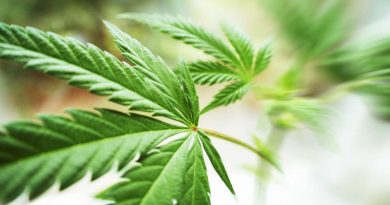Michigan Uses Cannabis Taxes To Fund Veterans Health Research
Two studies are set to start in Michigan in 2023 that will research how cannabis can help military veterans, including its effectiveness as a treatment for PTSD. State leaders decided to fund the two studies using money from Michigan cannabis taxes.
The state awarded $20 million in grant money in 2022 for cannabis research at the University of Michigan and Wayne State University in Detroit. The research will focus on the potential for cannabis to treat veterans who suffer from post-traumatic stress disorder (PTSD) and chronic pain.
The grant money comes from state revenue generated through Michigan cannabis taxes on recreational marijuana sales. Wayne State University will receive about $12.5 million for research into PTSD, while the University of Michigan received about $7.5 million for the research into pain management.
States Taking the Lead on Cannabis Health
As with all things cannabis-related, states must take the lead when it comes to research. The Department of Veterans Affairs currently does not allow its clinicians to prescribe cannabis. Many veterans have taken the issue into their own hands, obtaining medical marijuana outside of VA channels. That’s one reason Michigan officials wanted to move forward with state-funded research.
“Public opinion has really outpaced science in terms of cannabinoid therapeutics,” Dr. Leslie Lundahl, an associate professor in the Department of Psychiatry and Neurosciences at the Wayne State University School of Medicine, told WXYZ, the ABC affiliate in Detroit.
“There are animal data that suggests it might be helpful, there are anecdotal reports that it might be helpful for pain or for PTSD or mood or anxiety, but we don’t really have any hard scientific data to really support that,” Dr. Lundahl said.
While marijuana use does not prohibit veterans from obtaining services from the federal Department of Veterans Affairs, VA pharmacies may not fill prescriptions for medical marijuana. Further, the VA does not pay for medical marijuana prescriptions from any source, and the use or possession of marijuana is prohibited at all VA medical centers, locations and grounds.
“When you are on VA grounds it is federal law that is in force, not the laws of the state,” the VA warns.
The Two Studies Focus On Veterans
The Wayne State University study will study the impact of CBD and THC on those with PTSD. They will focus on PTSD symptom severity, as well as the frequency of suicidal thoughts and behavior, one of the most troubling symptoms of PTSD. Researchers also will test cognitive function and monitor vital signs of test subjects, as well as test blood and urine.
The University of Michigan plans to focus its research on the potential for cannabis in pain management with a goal of reducing suicide rates among veterans. In documents filed with the state to apply for the grants, university officials noted that more than 6,400 military veterans committed suicide in 2018. Chronic pain, including back pain and migraines, are associated with higher risks of dying by suicide among veterans.
Noting that “therapeutic cannabis research in this area is severely impeded by cannabis’s Schedule I status under the Controlled Substances Act,” University of Michigan officials said the proposed study could “investigate the effectiveness of cannabis-based therapies to treat Veterans with chronic pain, towards the goal of reducing Veteran suicide risk.”




